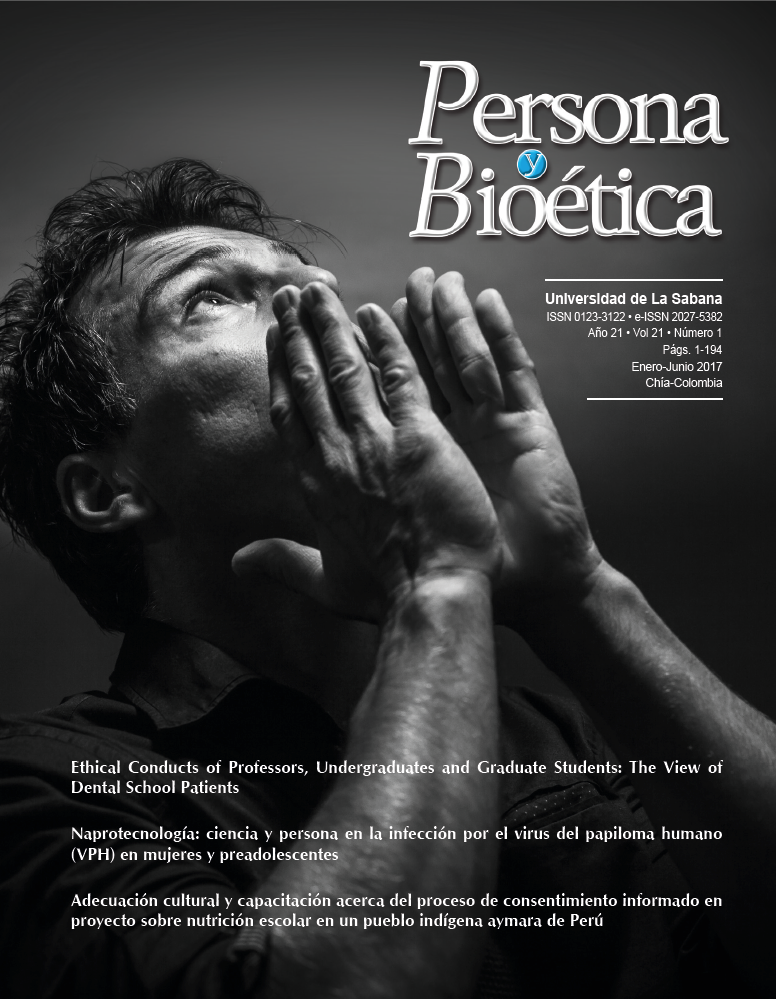Cultural adequacy and training with respect to the informed consent process in a school nutrition project for an Aymara indigenous community in Peru
Keywords:
understanding, informed consent, Indigenous peoples, the Aymara people, researchAbstract
Background: Research must respect ethical norms and informed consent (IC), with appropriate cultural adaptation and verification of its understanding in indigenous communities of the Andean and Amazonian regions, including social and medical research. Objective: Determine to what extent IC is understood in an Aymara community in Peru, specifically as concerns a school nutrition project. Methodology: A prospective, quasi-experimental field study of an educational intervention was conducted in Puno during 2015. The objectives and procedures of the school nutrition project in question were explained to the local Aymara leaders, and a questionnaire was prepared on knowledge and practices regarding healthy lunch boxes for Aymara children. An educational nutrition program and two IC formats (simple and culturally appropriate) were drawn up. The documentation was evaluated by a research ethics committee. Results: Seventy (70) Aymara villagers participated in the research project. The extent to which they understood the IC was modified to a statistically significant degree subsequent to the educational intervention and adaption for cultural appropriateness.
Downloads
Downloads
Published
How to Cite
Issue
Section
License
Authors who publish with this journal agree to the following terms:
This journal and its papers are published with the Creative Commons License Attribution-NonCommercial-NoDerivatives 4.0 International (CC BY-NC-ND 4.0). You are free to share copy and redistribute the material in any medium or format if you: give appropriate credit, provide a link to the license, and indicate if changes were made; don’t use our material for commercial purposes; don’t remix, transform, or build upon the material.





